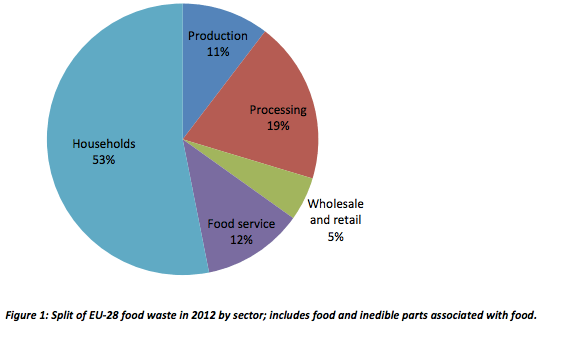5 reasons why having an empty fridge is not as bad as it sounds
Let me tell you a little secret. I currently have an empty fridge. Besides some bottles of water and some leftovers, it's totally empty.
And you know what? I enjoy it. I love having an empty fridge.
When I was a kid, my parents always had a full fridge. It was totally full. And as a kid, it was an exciting experience to open up the fridge door and explore the content of it.
Since then, things have changed.
An empty fridge keeps you grounded.
Let me get straight to the point. Here in Austria, Europe we do live privileged lives. For a lot of people, having no fridge at all (or an empty one) is a terrible reality.
In the USA, 30-40% of the food supply is wasted, equaling more than 20 pounds of food per person per month.
(source)
When I see full fridges, I do not think about all the great (and not so great) food which is stored. I rather think about the food which is thrown away.
Empty fridge means less food waste.
Food waste is a horrible thing. Especially when you think about the unequal distribution of food in this world.
The European Commission published a study on food waste in Europe. And the summary is really bad.
Around 88 million tons of food are wasted annually in the EU, with associated costs estimated at 143 billion euros.
Sounds a lot. Well, let's take a look at some further findings (shown in this paper):
- In total, we are wasting 20 % of the total food produced.
- Households contribute the most to food waste (actually 53% of all food waste comes from households).

(source)
Overall the report states, that there is a pressing need to prevent and reduce food waste to make the transition to a resource-efficient Europe.
I could not agree more.
Food waste is a real challenge. You can read about it here, here, and here.
Empty fridge means less stress.
Having an empty fridge also can have some practical benefits. One of the most important ones is the reduced level of stress. Buying and storing food can be quite stressful and intense. If you do grocery shopping regularly, you probably know that it can get quite stressful.
This exploratory research confirms grocery shopping to be stressful.
(source)
According to this research paper, time pressure is only one factor causing stress. Other factors causing stress while grocery shopping include: crowd density, staff attitude, store layout, location, music, and lighting.
Wow. Quite a lot of stress factors...
So here's the thing: If you simply reduce the time and amount of your grocery shopping runs, you won't be stressed out. Sounds easy, huh?
It saves you money.
Having an empty fridge does not only reduce your stress level but also save you quite some money.
Studies found that the average American spent $6,443 annually on food. That's $536,92 per month!
The United States Department of Agriculture published a food plan listing the average spendings on groceries per month.
For instance, if you are a household of two 30-year-old adults and you spend $761 or more per month at the grocery store, your spending is considered liberal.
And if you think about food waste again, the problem of spending too much money on your grocery shopping is even worse.
Food waste is a serious problem in the U.S., with the average family tossing $640 worth of food in the trash every year.
(source)
Full fridges are warming the planet.
Nowadays, we take fridges for granted. If we take a look at the history, fridges are a rather new thing.
In the mid-19th century, in the Northeast of the United States, people would cut ice from frozen ponds, and ship the ice around the world.
In today's world, fridges keep our groceries safe. Fridges run on electricity, and chances are high that if you still have an old refrigerator at home, it might not be very ecologically friendly.
Modern coolers and fridges may not cause holes in the ozone layer like their pre-1994 counterparts, but they still use greenhouse gases that are warming the planet.
(source)
Summary
It's as easy as it sounds. The less food we buy, the less food is stored in our fridges, and the less food we threw away.
Empty fridge = 💕
If you want to learn more about the history of refrigeration or fridges in general, check out these links:
- You should listen to this 99% Invisible podcast episode on The Ice King
- How refrigeration changed our lives
- A guide to eco-friendly fridges
